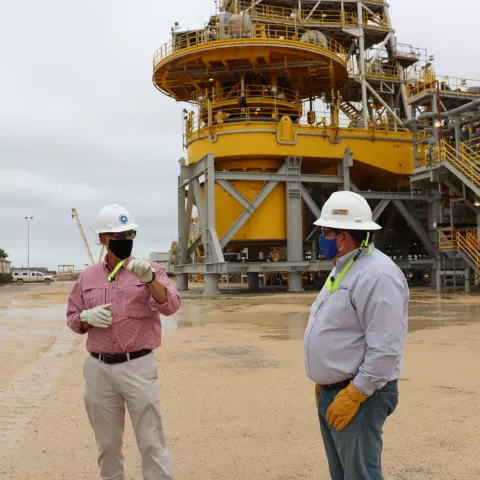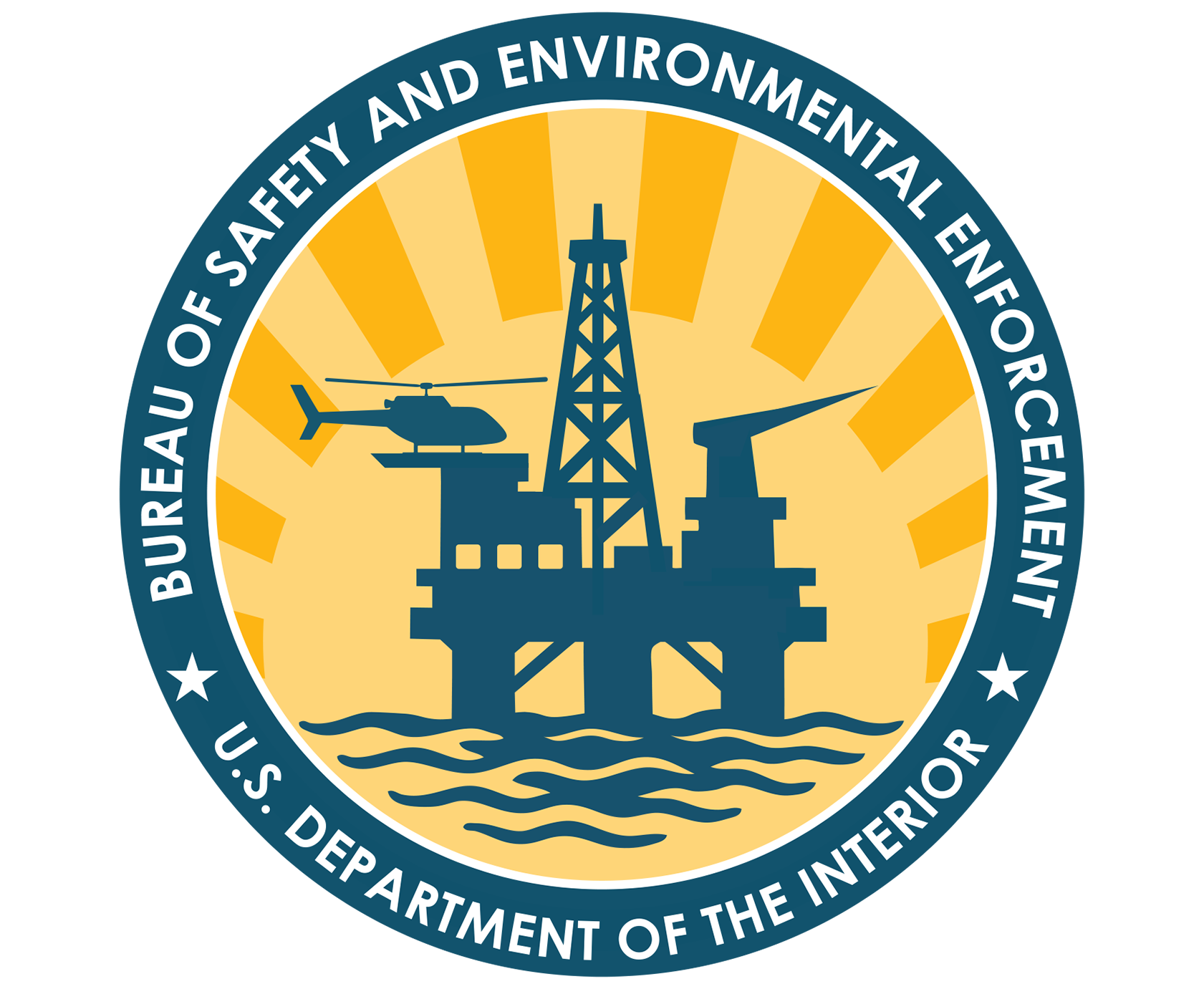
You are viewing ARCHIVED content published online before Jan. 20, 2025. Please note that this content is NOT UPDATED,
and links may not work. Additionally, any previously issued diversity, equity, inclusion or gender-related guidance on
this webpage should be considered rescinded. For current information, visit
News Items | Bureau of Safety and Environmental Enforcement.
BSEE Director Scott Angelle (center) discusses deepwater response capability with MWCC CEO David Nickerson (left) and COO Terry Costlow (right) at the organization’s deployment base in Texas on Monday.
INGLESIDE, TEXAS – Bureau of Safety and Environmental Enforcement (BSEE) Director Scott Angelle traveled to Ingleside, Texas, September 21, to examine well containment and source control response capabilities and equipment at the Kiewit Shipyard.
Subsea wells are designed to be shut off or capped quickly if a leak occurs; however, when that does not happen, containment equipment, which is pre-positioned at key locations around the Gulf of Mexico, is deployed to the location. Director Angelle viewed containment equipment at the Kiewit Shipyard which is maintained by the Marine Well Containment Company.
“Offshore oil and natural gas companies must always be ready to respond to any oil spill incident on the U.S. Outer Continental Shelf,” said BSEE Director Scott Angelle. “I am here to confirm the readiness of the deployment of this equipment notwithstanding the challenges of COVID-19.”
Under the Trump Administration and following BSEE’s implementation of an improved Well Control Rule in 2019, loss of well control incidents decreased 67% compared to the prior year. Further, when comparing total spill volume per barrels produced offshore, 2018 and 2019 represent the two best performing years in nearly a quarter of a century.
“There’s no doubt BSEE is committed to safety and stewardship,” said Angelle. “Reviewing the capabilities of the Marine Well Containment Company confirms that America is serious about requiring safe and environmentally sustainable operations on the Outer Continental Shelf.”
“We were pleased to have BSEE Director Angelle visit us on the frontlines, even in the face of a global pandemic,” said MWCC CEO David Nickerson. “Director Angelle was very engaged and asked serious questions about our readiness, to which we confidently responded.”
Today, America is the #1 producer of oil and gas in the world, the first time in 40 years, thanks in great part to the OCS, specifically in the Gulf of Mexico. The Gulf is one of the most important regions for energy resources and infrastructure. The Gulf’s federal offshore oil production accounts for 15% of total U.S. crude oil production and 3% of total Federal offshore natural gas production. Oil and gas production in the Gulf is crucial for our Nation’s national security, economy, and American jobs.
The Bureau of Safety and Environmental Enforcement (BSEE) is the lead federal agency charged with improving safety, ensuring environmental protection and conserving resources related to the offshore energy industry, primarily oil and natural gas, on the U.S. Outer Continental Shelf (OCS). BSEE is also responsible for ensuring facilities in State waters are maintaining response plans as required by the Oil Pollution Act of 1990. Under President Trump, BSEE is conducting more inspections, increasing the number of safety initiatives and ensuring more offshore oil and gas workers receive critical safety information.
--BSEE--
